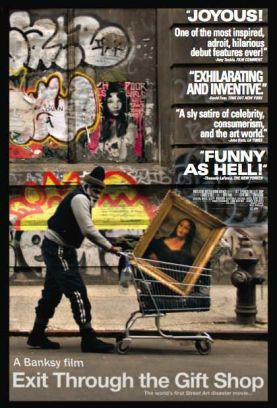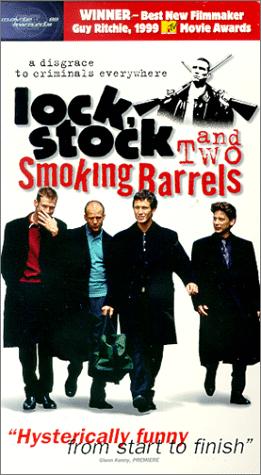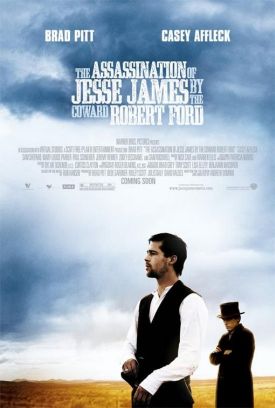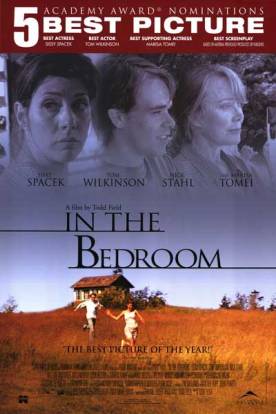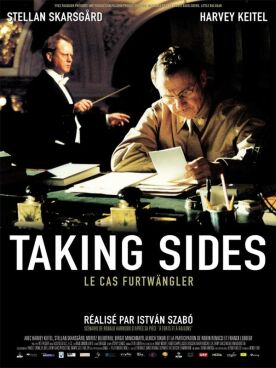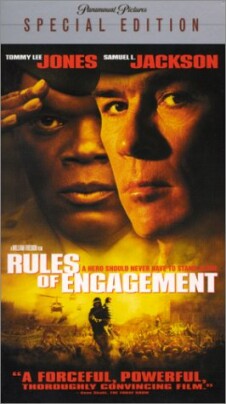In and Out
Perhaps the most unforgettable moment in In and Out (written by Paul
Rudnick and directed by Frank Oz) comes as Joan Cusack, having just been jilted
at the altar by Kevin Kline, who has picked that moment to decide that he is gay
( “Was there any other time you could
have told me this?” she asks in
exasperation), walks into a roadhouse bar, still in her wedding dress, and
propositions the first man she sees. This is Tom Selleck, who tells her
he is gay too. The camera pulls back to an exterior shot of the bar.
There is a pause before the door slams open and Miss Cusack steps out onto the
porch. At the top of her voice she screams to the night sky:
“Is everybody gay? Is this the
twilight zone?”
The scene is also significant because it tips us off to the true nature of
this gay fantasy. For a persistent feature of gay life and thought is the belief
that everybody is gay, or at least that everybody has the potentiality to
be gay and would secretly like, at some level, to be gay. The idea sorts
oddly with that other mainstay of contemporary homosexual ideology, namely that
one’s sexual orientation, straight or
gay, is laid down by fate (i.e. the genes) and unalterable. But the tension
between these two contradictory articles of faith gives gay intellectual life in
the 1990s something of its distinctive flavor.
In and Out is a sleeping beauty fantasy which relies on article number
one. Kline’s character, a high-school
English teacher in Greenleaf, Indiana called Howard Brackett, is the fairy
princess, awakened to his gayness by a kiss from Tom Selleck, who is a kind of
media prince and a reporter for a sleazy tabloid TV show. Up until that moment,
Howard has lived his life as an utter naïf, a man in his late 30s or early
40s who has never married and who adores Barbra Streisand but who has apparently
never considered the possibility that he might be gay before a former pupil, now
a famous movie star called Cameron Drake (Matt Dillon), outs him on national
television at the Oscars. He is genuinely bewildered, as is everybody else in
town—until The Kiss.
Such innocence! It is like the
film’s assumption that the one
infallible indicator of homosexuality is devotion to Streisand schmaltz. Rudnick
loves that it is impossibly innocent, and he loves knowing that he and the gay
culture from which he writes is experienced enough to know that it is
impossibly innocent. The same dynamic is at work in his depiction of the
too-good-to-be-true little town of Greenleaf, Indiana, where wholesome high
school students (though, apparently, they include no blacks) sing with full
throated affection:
Hail to thee, O Greenleaf High
’Neath the Indiana sky. . .
The whole town is innocent with Howard
Brackett’s own innocence, and is only
waiting to be awakened to tolerance and sexual freedom by
Rudnick’s kiss.
This he applies when Cameron Drake returns to Greenleaf and confronts the
bigoted principal of Greenleaf High, played by Bob Newhart, at the graduation
ceremony, inducing the entire town there assembled to stand up and proudly
announce that they are gay in order to express solidarity with Howard when he is
sacked. The fantasy is thus not only of innocence awakened, but of bigotry and
hatred and, with them, all moral censure and even disapproval, vanquished
forever in a perfect little Norman Rockwell town.
To Rudnick, as to many another amateur psychologist, this American idyll
wants only honesty and good will to be perfect. Thus, the response to
Howard’s coming out at his wedding
among a circle of old ladies presided over by his mother (Debbie Reynolds) is to
unburden their souls of their own deepest and darkest secrets: One says that her
rice krispie treats are not her own recipe but taken from that of another, now
deceased. “These are a dead
woman’s
treats!” she cries to her horrified
audience. Then others confess: “I
hated The Bridges of Madison
County,” or
“My husband has three testicles.
It’s
disgusting.”
The point is that wholesomeness and peace and happiness depend not upon
repressions and inhibitions but (what an idea!) on letting them go. This is a
point of view which may not be so well supported by evidence as it is by the
faith of our near contemporaries, but Rudnick and Oz have the wit and the
lightness of touch to make such touching and even rather old-fashioned
naïveté charming rather than irksome. In and Out is,
obviously enough, a gay fairy tale. But oh God, that it might be true!
Discover more from James Bowman
Subscribe to get the latest posts to your email.


